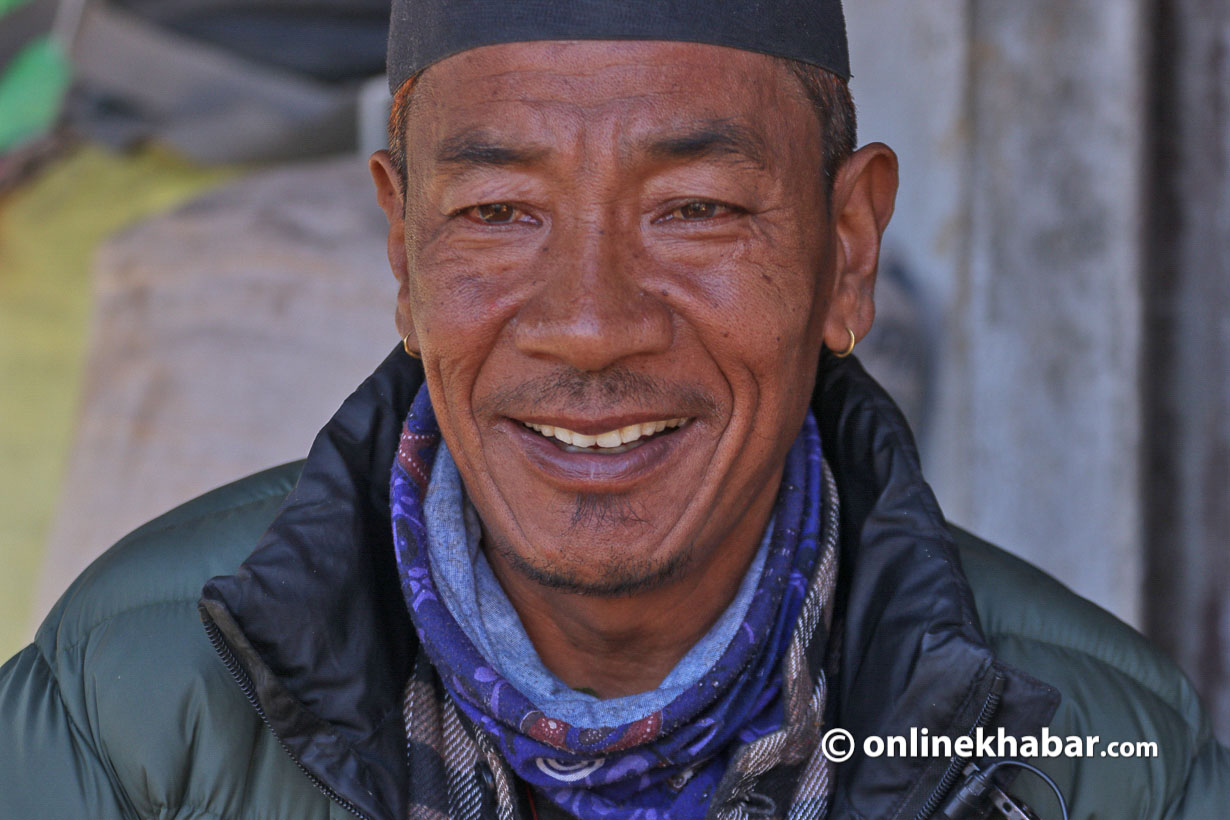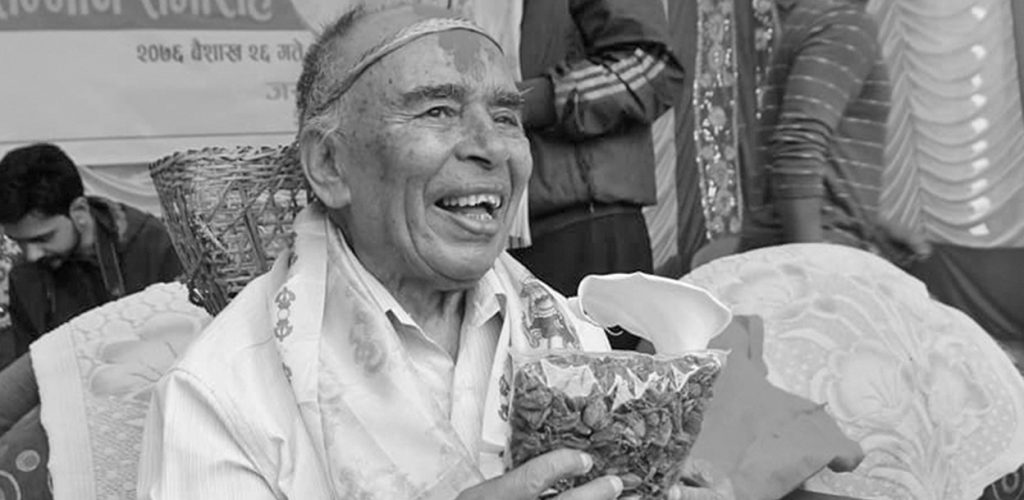Lalit Tamang and his wife Thuli Maya from Galchhi rural municipality in Dhadhing were shocked when their neighbours told them that their son, Ratna Bahadur Tamang, might have returned. It had been 22 years since his disappearance and the couple had lost all hope. The family had even conducted his funeral assuming him dead.
But, when their neighbour, Muskan Tamang, called them out to check if it was their son on the evening of December 6, 2021, both leapt at it. Barefoot, the couple ran down to Muskan’s house. When they saw their son, they were not sure if it really was their son because Ratna had changed a lot.
But, the village had also changed. “When I was here 22 years ago, things were different. There was no electricity and my house was somewhere else,” says Ratna. “That is why I asked people if I could stay the night so I could look for my parents during daylight.”
When Ratna met his parents, the environment became festive. Tears rolled out of all their eyes as the parents had finally seen their son after over two decades of disappearance.
The mysterious disappearance and magical homecoming
Ratna went missing during the civil war from Kathmandu. To figure out where he was, Lalit reached out to everyone he knew. Even though it was hard to commute during the war, he still did all he could to try and find his son. But no one knew where Ratna was.
Ratna’s elder brother Gyan Bahadur even went to the Commission of Investigation on Enforced Disappeared Persons but returned empty-handed. On the other hand, his parents frequented the nearest post office hoping to find a letter from their son, but they too had to return disappointed.
“We even went to a shaman to see if they could give answers,” says Lalit. “But, the shaman told us that he might be dead.”
But, they were uncertain because they still had hope and whenever anyone told them he might be alive, they would feel relieved. They spent the last two decades wondering if their son was alive or dead.
After receiving no news, Lalit, after speaking to his family, decided to perform Ratna’s final rites. With a heavy heart, Lalit performed the final rights in December 2019.
But, right around two years since that day, Ratna came home.
The usual background

Ratna spent his childhood with four sisters and three brothers. But, he had issues with his right leg since he was a child. Fearing he would not be able to do manual labour in the village, he decided to leave for Kathmandu in search of work. And shortly after coming to the capital, he did find work as a helper at a restaurant. Having seen how better life was in Kathmandu, he had also thought about calling his younger siblings to come work in the valley.
But, he was not able to do what he wanted and that always worried him. There were no loans to repay, but he still wanted to help out his parents and build a house for them.
In December 1998, he met a contractor who assured him that he would get him a well paying job in India. He had told him that he had a problem with his leg, but the contractor told him it would not be a problem and that he would be earning around INR 300 per day.
For Ratna, who was working on NRS 80 per day, this was a huge step up.
“I was so tempted by the offer, I left for India without telling anyone,” says Ratna, who was taken to Shimla by the contractor. “I was then taken to Rampur where I was working as a mason for a road that was being paved.”
But, two days after he reached Rampur, the contractor left without even informing him. That was daunting for Ratna who knew no one there. He was also only given INR 60 instead of the INR 300 that was promised.
“The contractor sold me for INR 300,000. I had heard that women were sold in India, but the guy sold me, too” says Ratna.
Assumption vs reality
When he left for India, the Maoists’ war was in full swing in Nepal. Due to the war, a lot of families had lost their loved ones in enforced disappearance cases and that was what Ratna’s family thought that had happened. Even though their village was not affected by the war, they knew about this and were certain that Ratna was lost to the war.
But, Ratna was not lost. He was spending his time working as a mason in the remote areas of Shimla. He spent three years there and even did not get a full salary. Because he did not have enough savings, he never thought about returning home.
From Shimla, he made his way to Laddak in Kashmir with his fellow masons who felt they were being mistreated in Shimla. He spent 18 years at a village near the India-China border, where the army would give them small chores to do. The place was so remote; it would be closed for people for half the year.
“I cut grass, wheat and did small chores there. I used Facebook and tried to contact people I knew in Nepal but couldn’t find them,” he says.
But, one day, when he was strolling around the city of Leh, he met two Nepalis, Papita from Solukhumbu and Ravi from Sindhupalchok, who owned a small restaurant there.

Seeing a fellow Nepali struggling, the two helped Ratna. His leg issue had worsened over time and he had also developed issues in his stomach and lungs. Ravi and Papita took him to a doctor and helped him get better.
“After that, Ravi brought me to Delhi and put me in a bus that went to Kathmandu. Had I not met those two wonderful souls, I don’t know what would have happened to me during the disappearance. They are like gods to me.”
He reached Kathmandu and boarded a bus to Dhading, but he was worried. He didn’t know how healthy his parents were because they were already in their 60s and 50s when he left 22 years ago.
“I just wanted to go home. But, I had also started to think where I would go if they weren’t alive,” he says.

To his relief, they were alive but he knew then that his life would not be any easy even though he was home.
All his brothers and sisters now live with their own families. All he has right now is a small house and a grocery store which he operates with his 81-year-old father and 74-year-old mother.
They have some land too, but none of them is in the physical condition to work there. Ratna has recently obtained his citizenship certificate and disability certificate.
“Life is not going to be easy, but at least I’m here with them during their old age even after decades of disappearance and I am very thankful for that.”



















